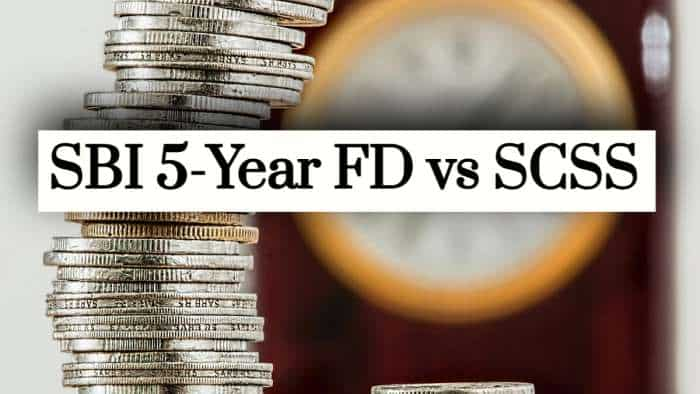SBI customers ALERT! BEWARE - You can LOSE your hard-earned MONEY if you do this
Why are you so happy and elated? Received an e-mail saying that you have received a handsome amount on your bank account. You need to enter your user name and UPI PIN to claim it. Well, BEWARE! This is a trap and in the hope of gaining some, you can lose all your hard-earned money.

SBI Fraud e-mail: Why are you so happy and elated? Received an e-mail saying that you have received a handsome amount on your bank account. You need to enter your user name and UPI PIN to claim it. Well, BEWARE! This is a trap and in the hope of gaining some, you can lose all your hard-earned money. The State Bank of India (SBI) has recently tweeted from its official Twitter account warning its customers against such scams.
See Zee Business Live TV Streaming Below:
The SBI time and again reminds its customers of the online scams and attacks. The recent tweet from SBI said, "Be aware of fraudulent emails offering free gifts and rewards. Scammers send these emails to extract money from your account via your personal details. Do not share your bank details with anyone. SBI never asks for your UPI PIN. Stay cautious & #SafeWithSBI."
Be aware of fraudulent emails offering free gifts and rewards. Scammers send these emails to extract money from your account via your personal details. Do not share your bank details with anyone. SBI never asks for your UPI PIN. Stay cautious & #SafeWithSBI.#CyberCrime #UPIFraud pic.twitter.com/JXHrDdyJJH
— State Bank of India (@TheOfficialSBI) June 29, 2021
The SBI has stated that receiving money does not require UPI PIN and has cautioned the customers against sharing one's UPI PIN with anyone.
The SBI customers must be aware of the fact that 'phishing' is a common form of internet piracy which is deployed to steal confidential financial information like bank account numbers, net banking passwords, credit card numbers, personal identity details and others. Later the perpetrators may use the information for siphoning money from the victim's account or run up bills on victim's credit cards. In the worst case, one could also become the victim of identity theft.
SBI website oninesbi.com has also noted the process in which these attacks come into play. They are as follows:
1) Internet banking user receives a fraudulent e-mail seemingly from a legitimate Internet address.
2) The email invites the user to click on a hyperlink provided in the mail.
3) User clicks the hyperlink and is redirected to a fake web site that looks similar to the genuine Internet banking site.
4) Usually, the email will either promise a reward on compliance or warn of an impending penalty on non-compliance.
5) User is asked to provide confidential information, such as login/profile or transaction passwords and bank account numbers etc.
6) User provides the details in good faith and clicks on 'submit' button.
7) User is displayed an error page
8) User has fallen prey to a phishing attack.
One must not click on any link, which has come through e-mail from an unknown source. It may contain malicious code or could be a 'Phishing attack'. One must not provide any information on the page that has come up as a pop-up window. The bank customers must remember the fact that information like password, PIN, TIN, etc are strictly confidential and are not known even to employees/service personnel of the Bank. Therefore, one must never divulge such information even if asked for.
For more information, one can login to the SBI website at onlinesbi.com
Get Latest Business News, Stock Market Updates and Videos; Check your tax outgo through Income Tax Calculator and save money through our Personal Finance coverage. Check Business Breaking News Live on Zee Business Twitter and Facebook. Subscribe on YouTube.
05:25 PM IST














 India likely to enter top 3 globally in terms of voter participation in elections: SBI Report
India likely to enter top 3 globally in terms of voter participation in elections: SBI Report SBI writes to RBI to consider non-financial transactions as well for tagging an account as operative
SBI writes to RBI to consider non-financial transactions as well for tagging an account as operative SBI fundraise touches Rs 50,000 crore in FY25
SBI fundraise touches Rs 50,000 crore in FY25 SBI raises Rs 10,000 crore through infra bond issuance
SBI raises Rs 10,000 crore through infra bond issuance SBI hikes lending rates under MCLR by 0.05%
SBI hikes lending rates under MCLR by 0.05%